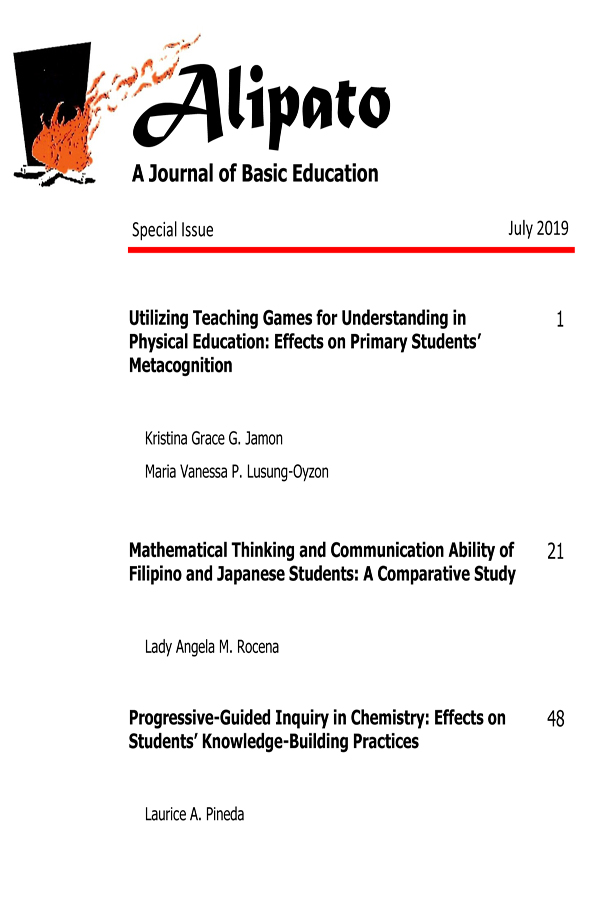Progressive-Guided Inquiry in Chemistry: Effects on Students’ Knowledge-Building Practices
Abstract
This study investigated the effects of Progressive-Guided Inquiry on students’ knowledge-building practices in Chemistry. It utilized a quasi-experimental pretest—posttest research design with two heterogeneous intact classes. Seventy-four Grade 8 students from two sections in a laboratory school in Quezon City participated in the study. One section was exposed to the Progressive-Guided Inquiry Approach (PGI) whereas the other section was exposed to the Conventional Teaching Approach (CTA). The Knowledge-Building Practices Assessment Tool (KBPAT) was used to assess students’ knowledge-building practices. The mean pretest scores of KBPAT were subjected to two-tailed test for independent samples to establish the initial comparability prior to intervention. To determine if the teaching approach was effective in improving students’ knowledge-building practices, the posttest scores in KBPAT were subjected to one-tailed t-test for independent samples. The statistical analyses showed that there were significant differences in the KBPAT which means that PGI was effective in enhancing the knowledge-building practices of the students. Based also on the results of the study, it is recommended that PGI, as a model of teaching, be used in teaching Chemistry to enhance knowledge-building practices.
Keywords: chemistry education, science inquiry, progressive-guided inquiry, knowledge building, knowledge elaboration, knowledge creation, knowledge advancement


